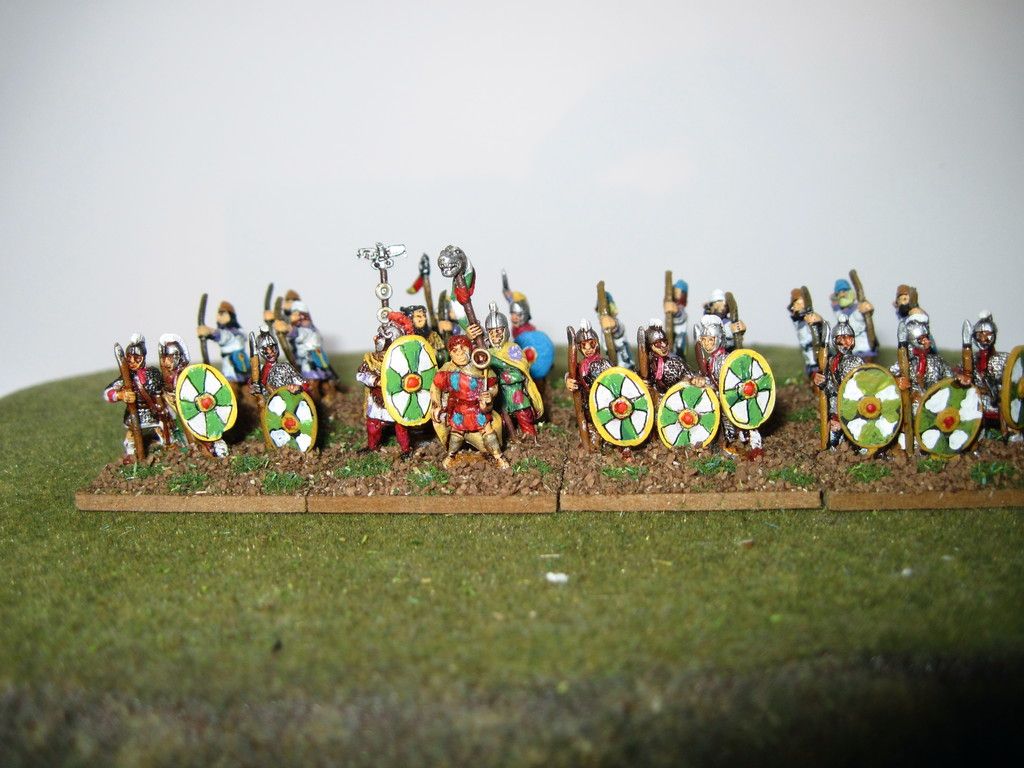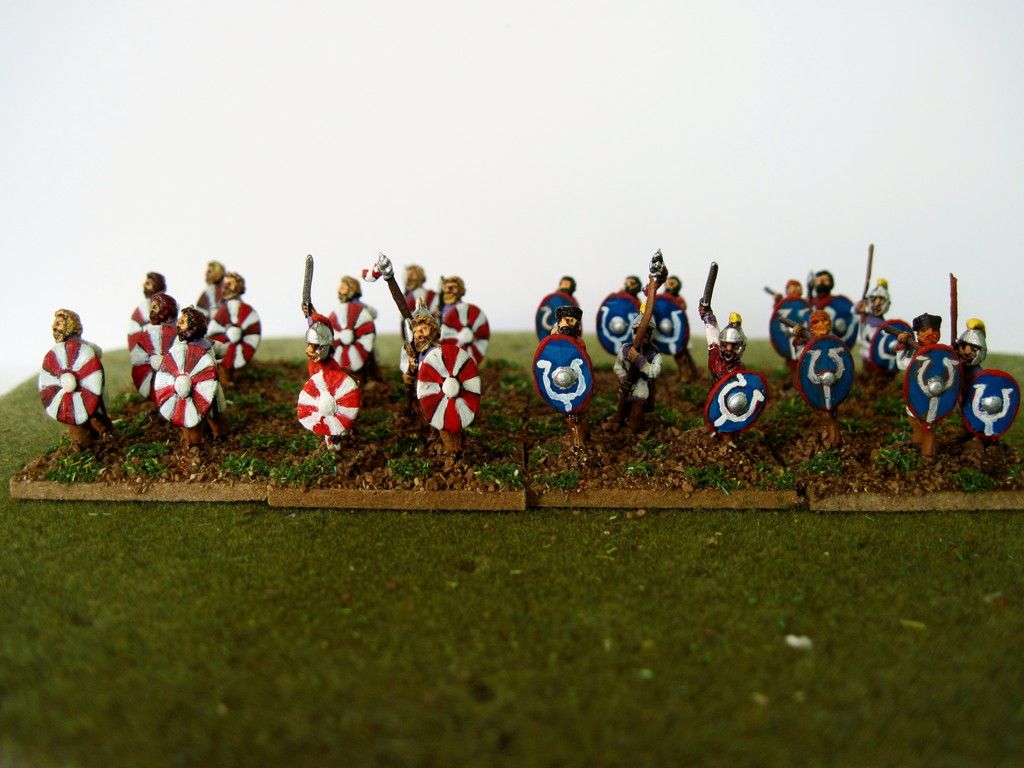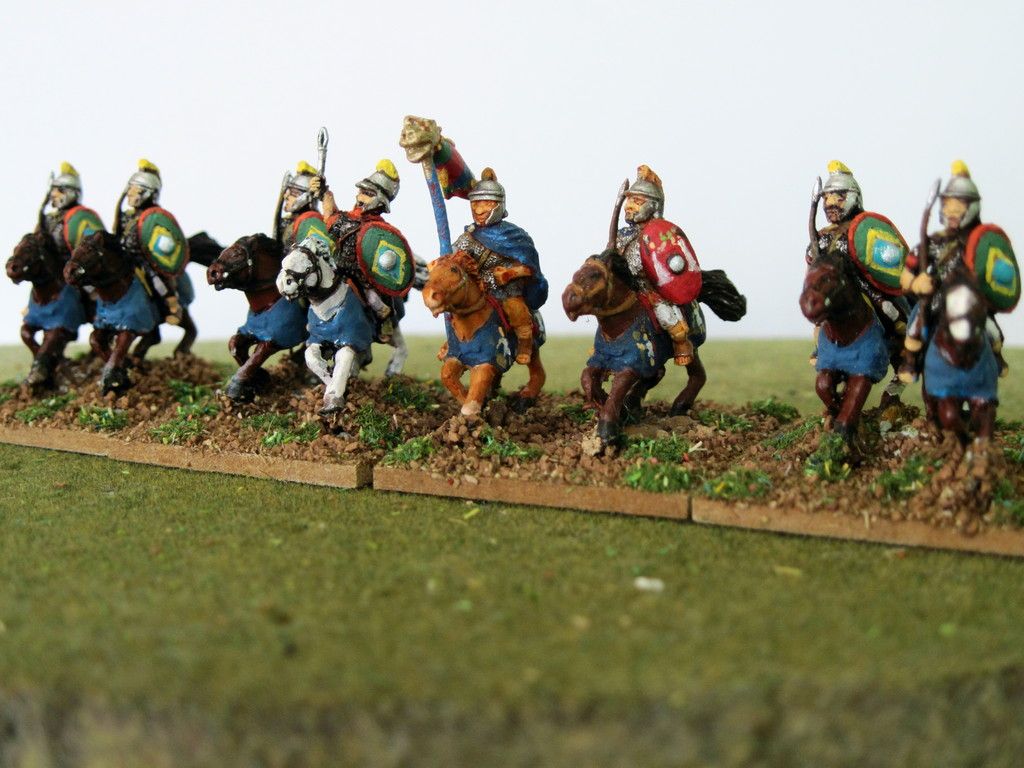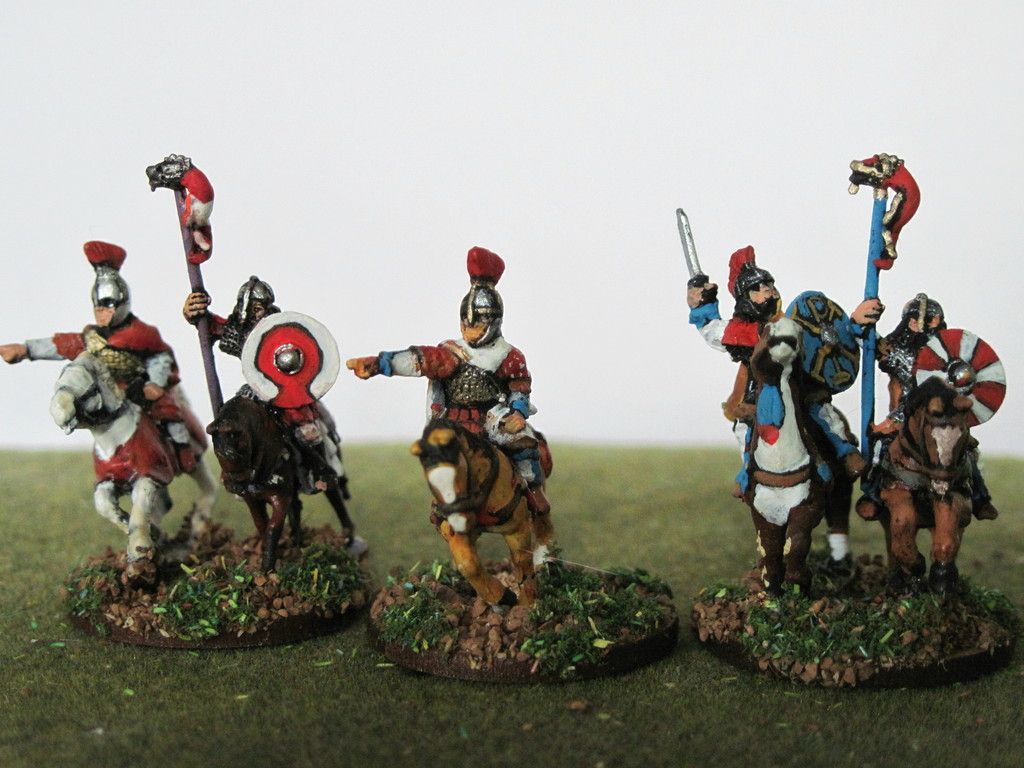Scholarly thinking on the Roman garrison of
Britannia, as drawn together by Mattingly, gives us a minimum of 18,500 soldiers.
These soldiers served either in the field army comitatenses or were permanently stationed limitanei on the borders of Britannia. The former were paid more than the latter. For a long time, this was taken as evidence that the limitanei were much inferior soldiers, almost a militia compared to the real regulars of the comitatenses.
These soldiers served either in the field army comitatenses or were permanently stationed limitanei on the borders of Britannia. The former were paid more than the latter. For a long time, this was taken as evidence that the limitanei were much inferior soldiers, almost a militia compared to the real regulars of the comitatenses.
Recently this view has been challenged by scholars who note that both groups were equipped in the same fashion and that limitanei units were sometimes incorporated into the field army.
One key difference is that the limitanei tended to fight as a single unit or in even smaller groups rather than as a regiment in line of battle. This was dictated by their function which was to hold defences and intercept relatively small groups of raiders. Their combat experience was therefore different from units in the field army who fought and manoeuvred as part of much bigger formations. Indeed, some have said that the combat experience of the limitanei was more heroic or individualistic just like their opponents.
From time to time other forces were available; groups of surrendered barbarians or units of high quality soldiers from the Emperor at Augusta Treverorum (Trier).
It is thought that Legions at this time routinely consisted of between 500-1000 men and other units of 300-500 men although exceptions to this are found and the question remains open. It is also the scholarly consensus that the limitanei and most of the field army were British in origin recruited from the locality of their unit’s station*.
The armour, discipline, training and command structure of
the Roman Army gave it a serious advantage against its opponents; especially in
the case of the part time farmer/warriors that comprised the bulk of non-Roman
armies. Barbarian aristocrats were more
of a challenge, they were full timers and might well enjoy greater morale than the average Roman
milite.
For the early period of At the Ends of Empire the Roman Army in Britain is thought to have been comprised of up to 6,000
* A key point would be that if the soldiers mothers were British they would as a consequence have 'P' Celtic as their mother tongue and add Army Latin to that.
For the early period of At the Ends of Empire the Roman Army in Britain is thought to have been comprised of up to 6,000
The garrison of the Wall, always a heavy commitment for the
army, perhaps consisted of 23 units including 5 of cavalry. Behind them were a
further 14 units including 3 of cavalry and the 6th Legion based at Eboracum
(York).
* A key point would be that if the soldiers mothers were British they would as a consequence have 'P' Celtic as their mother tongue and add Army Latin to that.




Lovely looking troops!!!
ReplyDeleteMuch appreciated Ray.
ReplyDeleteNice work here ! Why you didn't use the real shield patterns of roman units in Britannia ? Is it a pure aesthetric choice ?
ReplyDeletemost of your units where based in Gaul at the end of the Empire ;-)
Thanks, no its just the ones I had ready. The British ones are a work in progress.
ReplyDelete